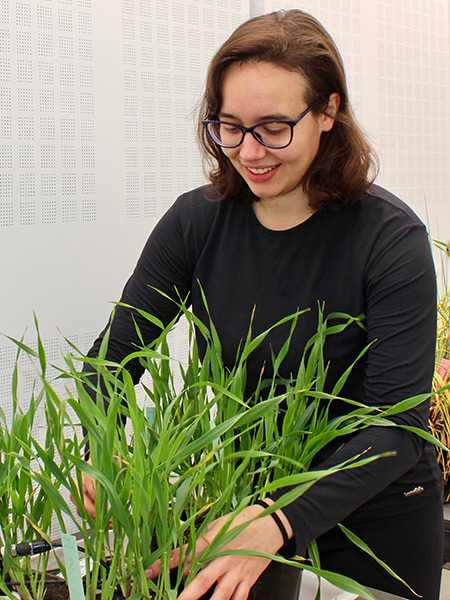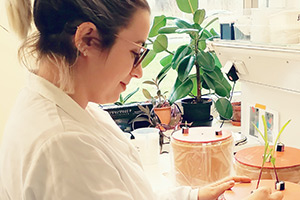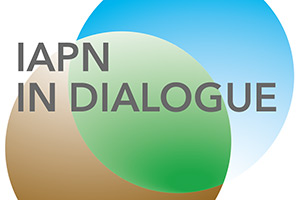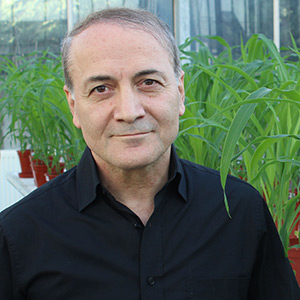News
- IAPN welcomes Dr. Renata Callegari Ferrari
At the beginning of September 2022, the IAPN team welcomed Dr. Renata Callegari Ferrari from Brazil as a visiting scientist. After completing her PhD in 2021, her thesis in the field of plant physiology was selected for the Highlight Recognition award by the University of São Paulo. Now, her research will focus on the project “Patchworking crop nutrition, stress and photosynthesis: can potassium supplementation in drought-stressed barley prevent a reduction in mesophyll conductance?" For this project, she was awarded a Georg Forster Fellowship from the Alexander von Humboldt Foundation for two years.
Brazil is already facing water shortage in areas of greatest economic activity, making research initiatives to improve the water-use efficiency (WUE) a key target for of crop plants. Other countries with unfavorable climatic conditions worldwide widely cultivate barley (Hordeum vulgare L.), but Brazil is still a relatively small barley producer. Even though beer is the most consumed beverage in the country, a significant percentage of the Brazilian demand for malt is fulfilled using imported barley according to the Brazilian Agricultural Research Corporation (EMBRAPA). Hence, investigating strategies to improve barley production in the country arise as a point of interest.
Potassium (K) supplementation for crops under drought has been mentioned as a strategy to mitigate water stress consequences. K sustains vegetative growth and can reduce grain yield losses in barley, according to experiments performed in field conditions by Andersen et al. (1991). These responses may be linked to the capacity of K to improve water retention in the soil, in addition to regulating stomatal aperture, limiting water loss via transpiration, and leading to improved plant WUE. However, these mechanisms are still not completely elucidated.
The mesophyll conductance (gm), understood as the leaf internal diffusional conductance, has been pointed out as a target for improving WUE when seeking more sustainable agriculture. K deficiency was shown to reduce gm in sunflower, leading to lower carbon dioxide (CO2) availability for carbon fixation in chloroplasts, as reported by previous research developed at IAPN. For its plasticity and impact on photosynthesis, gm presents unexplored potential to provide improvements for crop nutrition and crop breeding programs, also due to its genetic and biochemical components.
The research project of Dr. Renata Callegari Ferrari is being developed together with Professor Dr. Klaus Dittert and in cooperation with Dr. Tino Kreszies from the Division of Plant Nutrition and Crop Physiology in the Department of Crop Sciences at the University of Göttingen. The study seeks to connect K availability under drought to variations in gm using barley plants. As part of the research plans, the scientists will profile physiological and transcriptional changes taking place under nutritional and drought stresses combined in barley leaves, with a particular interest in gm. This study can potentially contribute to developing simple and new strategies for plant breeding that may improve yield in the context of aridification and climate change that will directly affect not only Brazilian, but also German agricultural practices.







